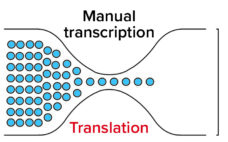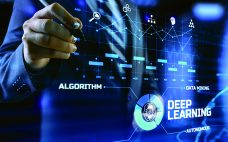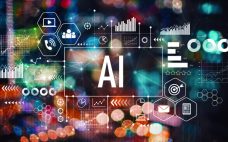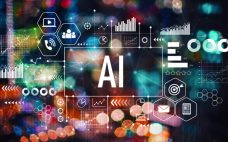The product development team at a gene therapy contract development and manufacturing organization (CDMO) was working on a high-priority drug-substance project for a key client. The material was crucial to that client’s early stage clinical trial, with an immediate value over US$500,000 to both the client and the CDMO. Unfortunately, the bioreactor used in the upstream process — a transfection unit operation for an adenoassociated virus (AAV) vector — had developed an intermittent problem that could force it to shut…
Information Technology
Smart, Real-Time Quality Insights Boost Life Sciences Manufacturing
The COVID-19 pandemic has shone a light on restrictive business processes, information silos, and poor supply-chain visibility in many sectors. In biopharmaceutical manufacturing, for example, difficulties associated with product-quality management have been exposed and starkly felt. However, public healthcare measures over the past 18 months have put physical distance between team members, thereby hampering the usual form-filling, manual sign-offs and spreadsheet-based recordkeeping associated with monitoring traditional manufacturing processes. In some cases, a lack of formal face-to-face discussions in the workplace…
Establishing a Digital Platform for Data Science Applications in Biopharmaceutical Manufacturing
Biopharmaceutical manufacturing consists of multiple processes with complex unit operations. Those include mammalian cell culture in upstream operations and downstream chromatography steps for removing impurities from production streams and purifying the therapeutic biological molecule (1). Biomanufacturers need enhanced understanding to ensure the process control and manufacture of safe and efficacious drug products. Process understanding also enables opportunities for improving manufacturing efficiency. Both process understanding and optimization can be facilitated by leveraging large volumes of biotechnology data — typically generated during…
Protecting Artificial Intelligence Inventions in Drug Development
Artificial intelligence (AI) is a lot more sophisticated today than it was just a few years ago. Its impacts are felt outside of technology applications such as computing, malware, and natural language processing. For example, Google’s AI (called DeepMind) recently solved one of biology’s greatest problems: It determined a protein’s three-dimensional shape from its amino acid sequence. Now, AI is making a foray into drug development processes. Drug development is a risky, expensive, time-consuming, yet often lucrative venture. The costs…
Working with Big Data in Healthcare and Bioprocessing Settings: A Brief Introduction to Key Components and Considerations
Artificial intelligence (AI) in healthcare and biopharmaceutical industries still is in early stages of development and use, yet proper data management is critical to successful implementation at any stage of the enterprise continuum. AI is applied to help researchers understand and analyze biology, diagnose diseases, design new drugs, and predict clinical potential and treatment outcomes. AI has been applied in the discovery and development of novel drugs and for repurposing existing drugs, manufacturing different types of drug products, and optimizing…
Pathogen Safety Digital Platform for Biopharmaceuticals: The Journey from Ground to Cloud
Digital transformation is at the heart of many biopharmaceutical companies’ strategies for ongoing success. However, the definition of digital transformation and what it consists of differ within the bioprocess industry (and might even vary within a single company), specifically as it applies to the overall value chain from R&D to clinical trials, manufacturing, supply chain, and eventually commercial operations. To provide a perspective on what digital transformation could look like in bioprocessing, we present a case study about an exploratory…
Realization of Quality By Design and Beyond: The Intelligent Cell Processing System
Cells are used as raw materials, intermediates, and final products in biopharmaceutical and cell therapy manufacturing. Because living cells are always in a dynamic state, their characteristics must be kept within specified ranges throughout bioprocessing to preserve their utility. Cell population expansion without changing the original cell properties is key for obtaining the required number of cells at the next step. However, limited process data are collected during the expansion phase — information that could be used to understand and…
Designing Vaccines: The Role of Artificial Intelligence and Digital Health, Part 2
In BPI’s October 2021 issue, part one of this review introduced the concepts of machine learning (ML) and artificial intelligence (AI), identifying some broad areas of application within vaccine discovery, preclinical testing, and clinical studies. This month, we conclude with a detailed discussion of specific disease targets and AI’s potential in addressing them. Having highlighted the example of Zika virus in part one, below we focus on malaria, tuberculosis, human immunodeficiency virus (HIV), herpesvirus, hepatitis, and pandemic coronavirus. Malaria Malaria…
eBook: Cell and Gene Therapies — Optimization Strategies for Processing and Potency
Although relatively new to the biopharmaceutical industry, cell and gene therapy development and manufacturing are advancing rapidly. At Informa Connect’s September 2021 Cell & Gene Manufacturing & Commercialization Conference and Exhibition, held in Boston and online, presentations reviewed concerns that arise when processing complex therapies and highlighted some innovative strategies for surmounting those obstacles. Most of those approaches described during the event used data-driven solutions, with each step building on the information gained from the previous one. High-throughput technology platforms…
Designing Vaccines: The Role of Artificial Intelligence and Digital Health, Part 1
According to the founder and executive chairman of the World Economic Forum, Klaus Schwab, the fourth industrial revolution began in the 21st century and is characterized by an unprecedented development and exponential growth of a high-technology industry transforming society at every level (1–4). In particular, healthcare systems are evolving rapidly to adapt to the new reality. According to Forbes, the main technologies currently shifting the paradigm of medical research are artificial intelligence (AI) and machine learning (ML) (5), both defined…










